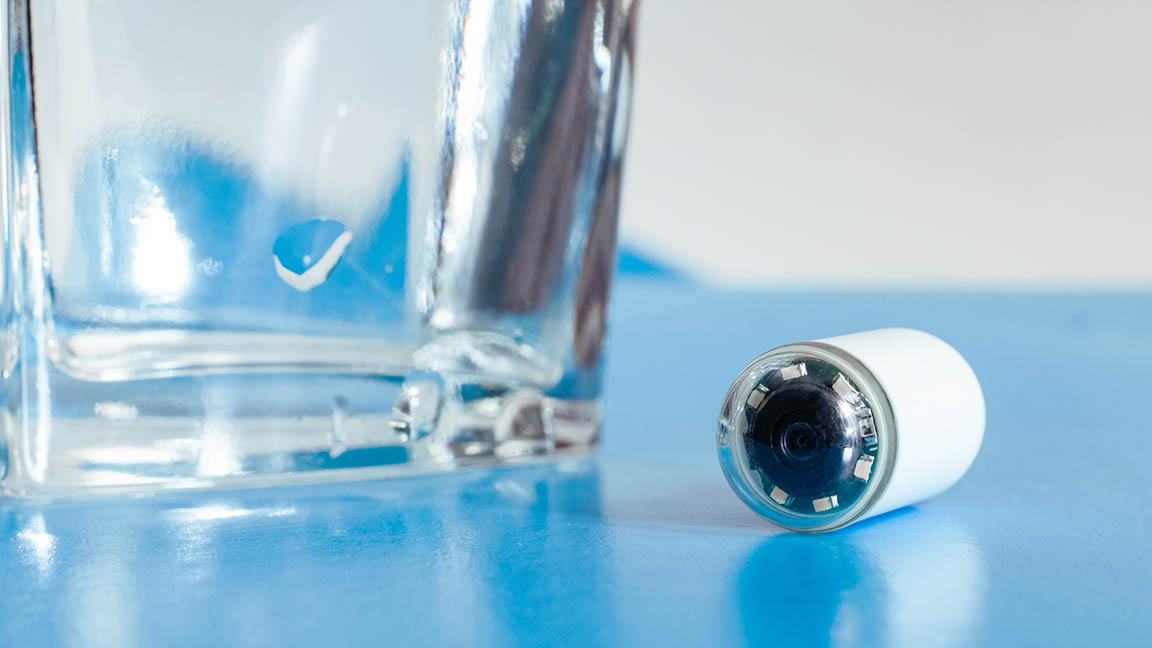If you’re struggling with digestive problems, it can be helpful for a physician to look inside your body to see where the trouble lies. Traditionally, this has been accomplished with a flexible fiber optic instrument inserted through the rectum or esophagus, but a relatively new approach called capsule endoscopy is giving some patients a second option — one that can be a bit more comfortable.
Patients who undergo a capsule endoscopy are given a small capsule the size of a large pill to swallow.
The capsule has an extremely small camera inside that continually takes photos as the capsule passes through the esophagus, stomach and intestines. It is most often used to diagnose conditions of the small intestine – an area that can be difficult to reach with traditional endoscopy.
“Capsule endoscopy is a minimally invasive diagnostic procedure that gives us a better way to diagnose diseases of the small intestine,” says Dr. Sebastian Abadie, a gastroenterologist who practices at Tidelands Health Gastroenterology at Murrells Inlet. “Most patients find it to be more tolerable than a traditional endoscopy.”
Good for many, but not all
A provider may order a capsule endoscopy to investigate unexplained abdominal pain or gastrointestinal bleeding, to screen for tumors, polyps or ulcers or to diagnose digestive diseases such as celiac disease or Crohn’s disease.
Featured Article
Popular radio host finds welcome relief from swallowing problems, stomach pain
Read ArticleHowever, a capsule endoscopy is not the best approach in all circumstances. For example, it isn’t the best way to evaluate gastrointestinal issues thought to be localized to the beginning of your digestive tract or to the large intestine.
And some patients have medical circumstances that make other options more appropriate.
“A capsule endoscopy is not right for every patient,” Dr. Abadie says. “Before recommending this procedure, your physician should evaluate your medical history and medications and inquire about any issues that may influence the procedure such as difficulty swallowing.”
An excellent tool
To capture data from the capsule as it travels through your digestive tract, your provider will tape a number of small sensors to your abdomen that will transmit information to a data recorder worn around the waist. This equipment will stay in place until the test finishes in about 8-12 hours.
It will take up to two days to pass the capsule naturally during bowel elimination. You can generally drink clear liquids within two hours and eat a light meal within four hours.
“Capsule endoscopy allows us to gather important diagnostic information in a minimally invasive way,” Dr. Abadie says. “It’s one of many excellent tools we have available at Tidelands Health to help improve our patients’ digestive health.”

Dr. Sebastian Abadie
Gastroenterologist, Tidelands Health Gastroenterology
Bio
Dr. Sebastian Abadie is an experienced gastroenterologist who offers care at Tidelands Health Gastroenterology at Murrells Inlet.
Learn MoreMedical Education
Education
- National University of La Plata, Doctor of Medicine
Residency
- East Carolina University, Internal Medicine
Fellowship
- Metro Health Medical Center, Gastroenterology
Awards
- ABIM (American Board of Internal Medicine)
- ABIM GI Boards
- ECFMG Certification
Meet the Expert
Dr. Sebastian Abadie
Dr. Sebastian Abadie is an experienced gastroenterologist who offers care at Tidelands Health Gastroenterology at Murrells Inlet.





